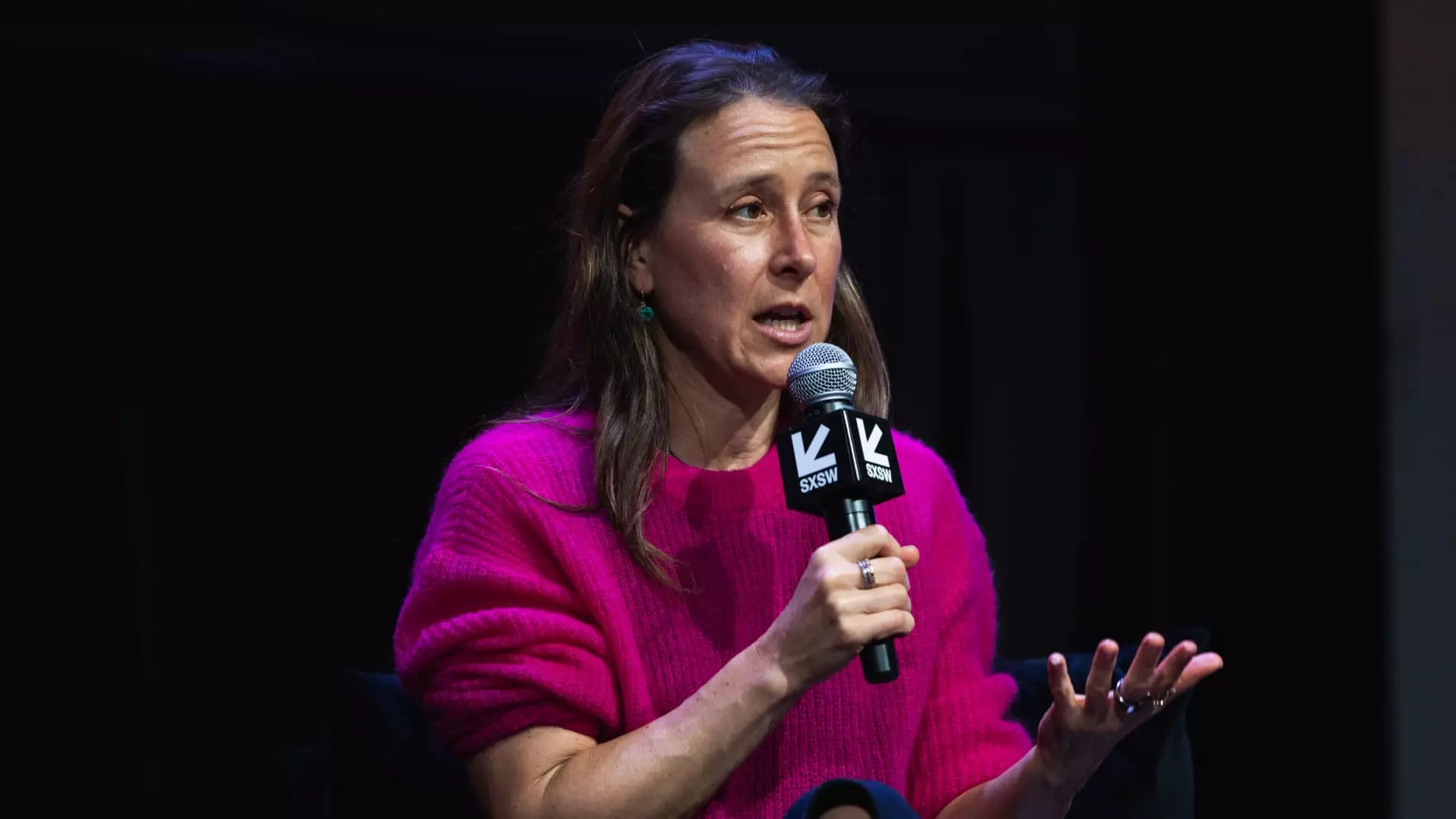In a move that leaves the future of genetic testing hanging by a thread, 23andMe, once celebrated for democratizing access to genetic information, has filed for Chapter 11 bankruptcy protection. This unexpected development comes only a short while after the company enjoyed a soaring valuation of $6 billion. The firm, co-founded by Anne Wojcicki in 2006, claimed a broad user base yearning for insights into personal ancestry and genetic heritage, but a series of unfortunate choices have led to financial turmoil, leaving many to question what went wrong.
Anne Wojcicki, a prominent figure in the biotech sector, has stepped down from her role as CEO, although she will maintain a presence on the board of directors. This duality can be seen as both a distancing from failures and an indication of her ongoing belief in the potential of the company. Joseph Selsavage, who served as chief financial and accounting officer, will step in as interim CEO. Wojcicki’s resignation amplifies a narrative of accountability, as she admitted in a public statement, “I equally take accountability for the challenges we have today,” demonstrating a yearning to confront the reality of the situation.
From Starlit Heights to Grounded Realities
The story of 23andMe is one punctuated by dizzying highs and frustrating lows. Initially, the company broke boundaries with its groundbreaking DNA testing kits, which appealed to a broad audience eager to delve into their genetic ancestries. This democratization contributed to its meteoric rise, culminating in a high-profile merger with a special purpose acquisition company (SPAC) that brought the company to public trading status in 2021, at a valuation of approximately $3.5 billion.
Unfortunately, this surge was short-lived. Market conditions have since shifted, revealing vulnerabilities in the company’s business model as it faced difficulties generating sustainable revenue from its testing kits and expanding into research and therapeutics. This uneasiness is highlighted by its crumbling stock market performance, which has plummeted to a minuscule market capitalization of around $25 million. The question is not merely financial; it is existential. Can 23andMe find a fresh path in a world that seems increasingly skeptical of its offerings?
In Search of Stability: Challenges that Mount
The challenges confronting 23andMe are multifaceted. After a series of proposals aimed at taking the company private were rejected, the board’s formation of a special committee to explore potential avenues forward reflected a sense of urgency and desperation. As noted, the company faces liability estimates matching its assets, ranging between $100 million to $500 million. This situation creates a paradox for a company that once commanded significant influence in the biotech arena.
One cannot overlook the additional layer of complexity added by grainy issues of privacy and data breaches. In October 2023, a significant hacking incident exposed sensitive information for nearly 7 million customers, further driving a wedge between consumer trust and the company. California Attorney General Rob Bonta’s consumer alerts urging residents to reconsider their affiliations with 23andMe heighten the stakes, pressing the urgency for the company to maintain rigorous privacy measures during this tumultuous period.
Critical Thoughts on the Future of Genetic Testing
As the dust begins to settle around the nascent fallout, one must ask: what does the future hold for genetic testing? Wojcicki’s call for customers to retain “choice and transparency” when it comes to their personal data resonates strongly in a modern landscape where individuals are increasingly vigilant about their digital footprints. However, delivering on such promises during a convoluted reorganization process may prove to be a monumental task.
If 23andMe is to be reborn from the ashes of its rebellion against traditional business models, it must redefine its approach not only to its core offerings but also to its rapport with consumers and stakeholders alike. The specter of privacy concerns will loom large, as consumers question whether their genetic data is safe under the stewardship of a flailing enterprise. Wojcicki’s continuing presence on the board may represent hope for a future revival, yet skepticism will linger.
With bankruptcy looming, the lessons learned from 23andMe’s journey can serve as a cautionary tale for emerging companies in the biotech sphere. The interlinked domains of technology, privacy, and consumer confidence promise a testing ground for those willing to innovate—not just in products, but in restoring faith in a brand weathering a storm of turmoil.

